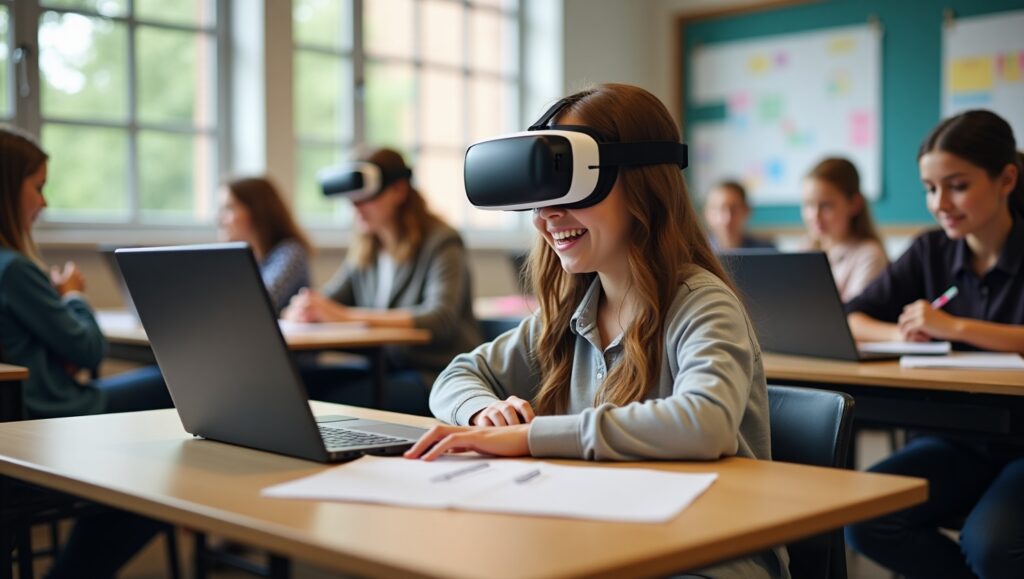Technology provides personalized learning experiences customized to students’ unique needs. But what Specifically is adaptive learning, and how is it forming the future of education?

Let’s Explain What is Adaptive Learning?
Adaptive learning is a technology-motivated approach that customizes educational content to each learner’s abilities and progress. It determines a student’s strengths and limitations using artificial intelligence (AI) and data analytics, then adjusts the content in real-time to improve learning results.
How Does Adaptive Learning Work?
Assessment & Analysis:
Through interactions and quizzes, the system assesses a student’s level of understanding.
Personalized Learning Path:
The software adjusts the pace, learning style, and degree of difficulty based on user performance.
Instant Feedback:
Students get feedback right away, which helps them concentrate on their areas of weakness.
Continuous Adaptation:
The system continues to improve and tailor the learning experience as the student advances.
Benefits of Adaptive Learning
Personalized Learning Experience:
Each student receives a special, customized education.
Effective Learning:
Assists pupils in grasping ideas at their own speed without needless repetition.
Better Retention:
Customized and interactive information improves knowledge retention and engagement.
Data-Driven Insights:
Teachers can monitor student development and modify their methods as necessary.
Flexibility:
Performs well in a range of instructional contexts, including corporate training and schools.

Challenges in Implementing Adaptive Learning
Adaptive learning has certain challenges in spite of its advantages:
High Initial Costs:
A substantial investment is needed to develop AI-driven platforms.
Data Privacy Issues:
It’s critical to handle and store student data safely.
Teacher Training:
Teachers must adjust to changing instructional methods and technological advancements.
Adaptive Learning’s Future
Digital education is without any doubt the way of the future. Adaptive learning will grow much more complex as AI, machine learning, and big data continue to progress. It will be used more and more in corporate training programs, educational institutions, and schools to improve the efficacy and efficiency of learning.

With more than 20 years of experience in higher education leadership, Ruth E Lugo has held prominent academic positions at a variety of institutions, concentrating on key areas such as student learning, faculty development, curriculum design, and institutional accreditation. As the Team Chair for eleven accreditation evaluations with the Middle States Commission on Higher Education, she has successfully directed thorough assessments that uphold academic standards and regulatory requirements. Furthermore, Ruth has provided consulting services to major international institutions, offering guidance on accreditation processes, strategic planning, and governance frameworks. Her extensive knowledge in assessment, budget management, and collective bargaining, combined with her commitment to academic excellence and institutional effectiveness, make Ruth E Lugo a passionate champion for shared governance in higher education.
